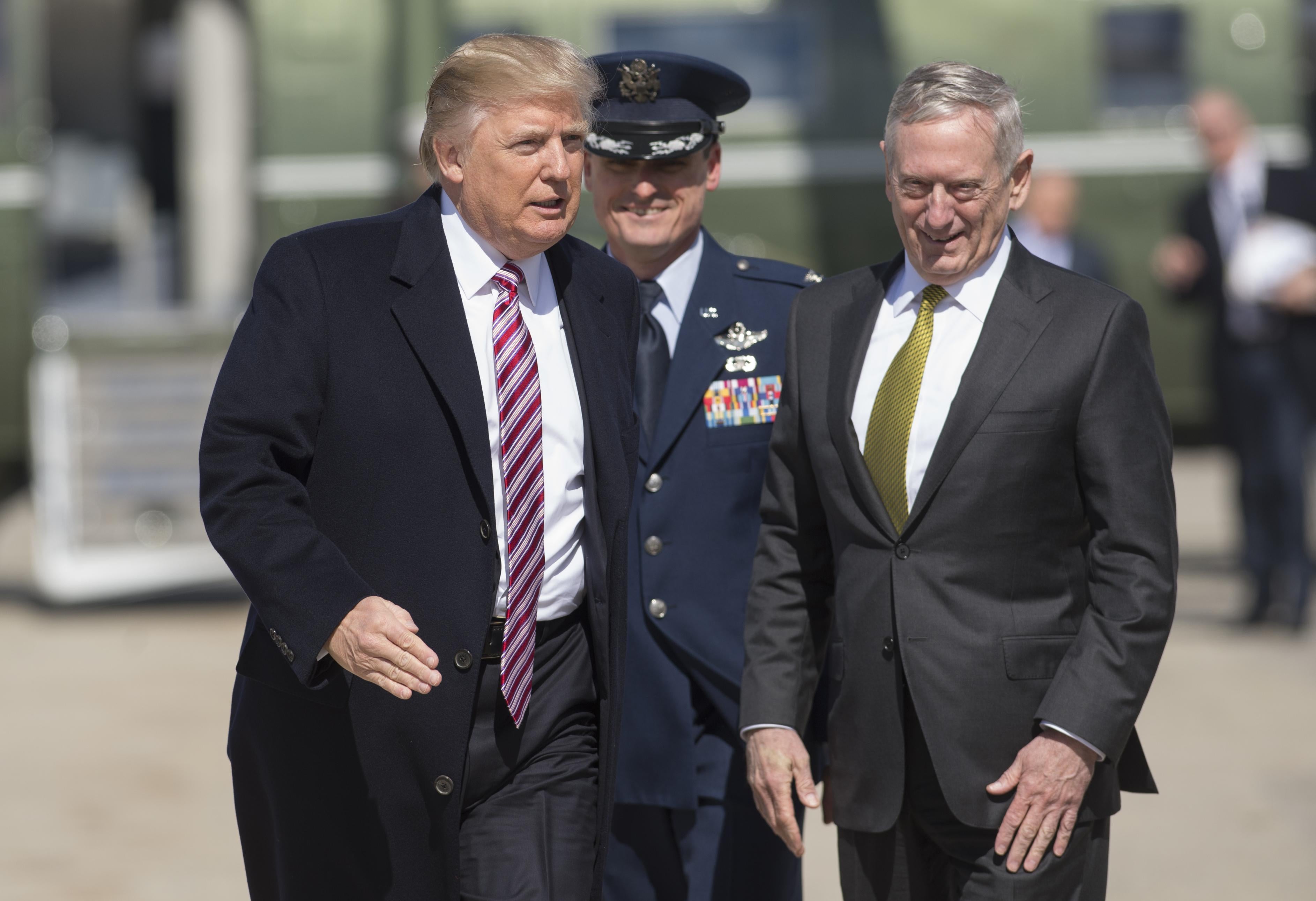The Washington Post reports that President Trump will announce next week, most likely in a speech on Thursday, that he will decertify the 2015 nuclear deal with Iran—but the deal itself may survive. This strategy was previewed by Ambassador to the United Nations Nikki Haley in September, and Politico reported earlier this week that it was unanimously recommended by the president’s national security team. Here’s how it works:
Under the deal, officially known as the Joint Comprehensive Plan of Action (JCPOA), the U.S. agreed to waive nuclear-related sanctions in exchange for Iran restricting its nuclear enrichment activities. If Trump wanted to, he could scrap the JCPOA and reimpose sanctions himself. The problem—as his top advisers, many of whom are Iran hawks who opposed the deal, have been telling him—is that none of the other signatories to the JCPOA, including European allies, are likely to follow suit and put their own sanctions back on. This means Iran might simply restart its nuclear program, with much less pressure of international sanctions than existed before 2015. Iran has also made clear it has no intention of agreeing to renegotiate the deal, and there’s little appetite for reopening this tortuous process among the other signatories.
So how can Trump (sort of) keep his campaign promise to dismantle the “worst deal ever” while still keeping the JCPOA mostly intact? By making it Congress’ problem.
In 2015, Congress passed the Iran Nuclear Agreement Review Act, prior to the Obama administration signing the JCPOA. Among other things, the law requires the president to certify every 90 days that Iran is still in compliance with the terms of the deal and that continuing to waive sanctions is still in the “national security interests of the United States.” Trump has now done so twice, albeit extremely reluctantly. International inspectors and U.S. intelligence agencies have repeatedly said that Iran is abiding by the JCPOA’s terms, but the “national security interests” bit gives the administration a little more wiggle room, and the Post suggests that Trump will use this as a pretext to decertify.
As Haley did in her speech last month, Trump is likely to point to Iran’s support of military groups like Hezbollah and its ongoing missile tests to argue that the deal is not in U.S. national security interests. He’s likely to call for new sanctions related to those activities and could potentially decide to designate Iran’s powerful Revolutionary Guard Corps as a terrorist organization.
Secretary of Defense James Mattis made the national security argument slightly awkward this week by telling the Senate Armed Services Committee that he believes staying in the JCPOA is in the best interests of the United States, but it’s not as if the president is uncomfortable contradicting his advisers.
Decertification on its own wouldn’t pull the U.S. out of the deal, but it would start the clock ticking for Congress, which would have 60 days to decide whether to reimpose the sanctions lifted under the JCPOA. Normally, new Iran sanctions are about the easiest thing short of renaming a post office to pass through Congress, but things may be different this time. It was easy for members of Congress to call for ripping the deal to shreds when Obama was in office, but now the president is actually giving them the opportunity to do so. Some, such as Sen. Ted Cruz, no doubt still want to. But at least a few Republicans as well as hawkish Democrats who opposed the deal two years ago realize that if the JCPOA disappears, flawed as it may be, there’s no Plan B to prevent Iran from developing a nuclear weapon. (The dynamic is not all that dissimilar from Republican vows to repeal Obamacare.)
In any event, both the Post and Politico reports suggest that the administration won’t actually push Congress to reimpose the sanctions that are supposedly vital to U.S. national security interests. Of course, there are a million ways this could go wrong, but the ideal scenario seems to be that the JCPOA will remain mostly intact, while the U.S. cracks down on other nefarious Iranian activities. Of course, there’s nothing stopping the U.S. from doing that without decertifying, so this whole drama feels rather absurd and unnecessary.
